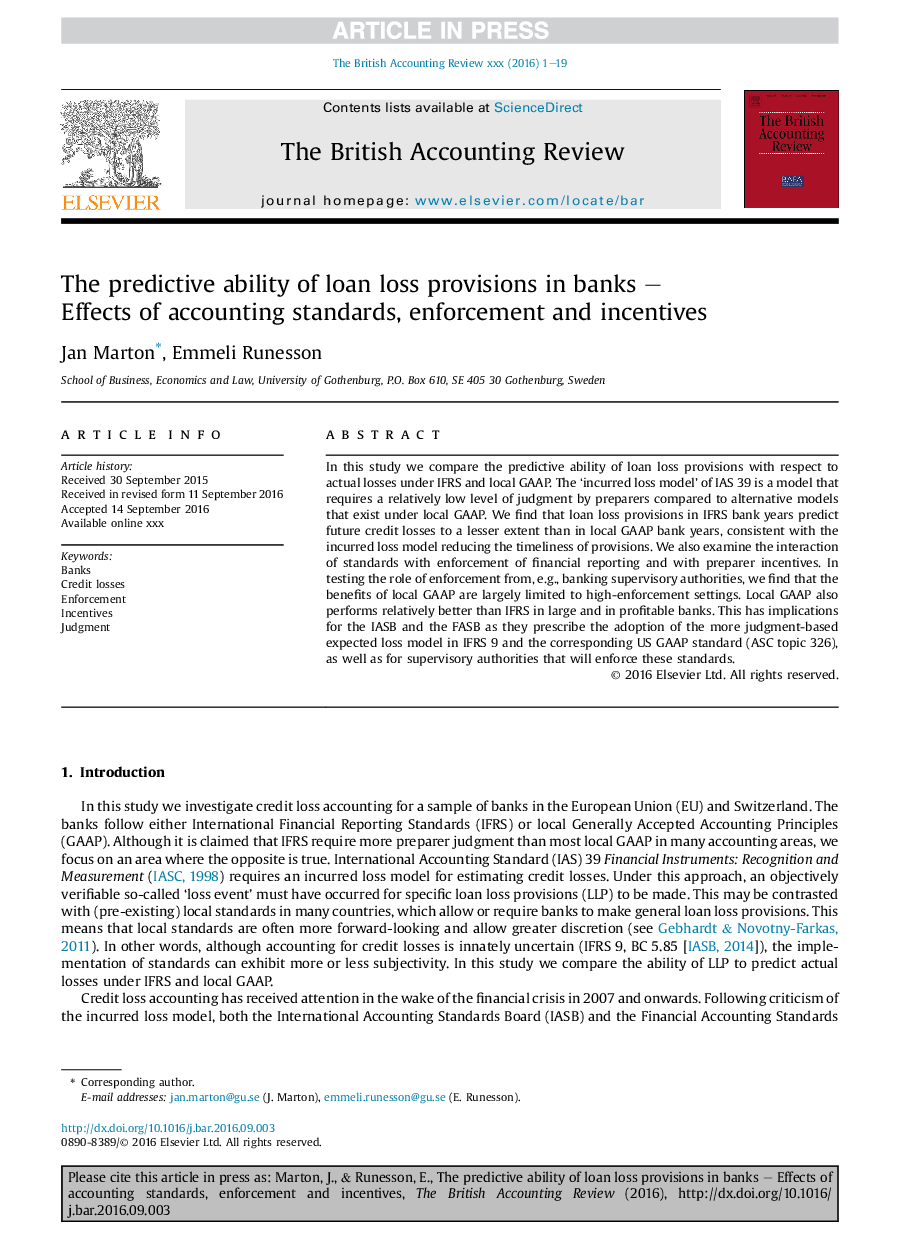| Article ID | Journal | Published Year | Pages | File Type |
|---|---|---|---|---|
| 5107537 | The British Accounting Review | 2017 | 19 Pages |
Abstract
In this study we compare the predictive ability of loan loss provisions with respect to actual losses under IFRS and local GAAP. The 'incurred loss model' of IAS 39 is a model that requires a relatively low level of judgment by preparers compared to alternative models that exist under local GAAP. We find that loan loss provisions in IFRS bank years predict future credit losses to a lesser extent than in local GAAP bank years, consistent with the incurred loss model reducing the timeliness of provisions. We also examine the interaction of standards with enforcement of financial reporting and with preparer incentives. In testing the role of enforcement from, e.g., banking supervisory authorities, we find that the benefits of local GAAP are largely limited to high-enforcement settings. Local GAAP also performs relatively better than IFRS in large and in profitable banks. This has implications for the IASB and the FASB as they prescribe the adoption of the more judgment-based expected loss model in IFRS 9 and the corresponding US GAAP standard (ASC topic 326), as well as for supervisory authorities that will enforce these standards.
Keywords
Related Topics
Social Sciences and Humanities
Business, Management and Accounting
Accounting
Authors
Jan Marton, Emmeli Runesson,
